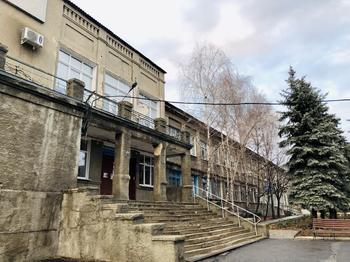In Transition: Rupture and Loss in Contemporary Ukrainian Art. The Case of IZOLYATSIA
Ewa Sułek (DAAD PRIME postdoctoral research project, carried out at the Davis Center for Russian and Eurasian Studies, Harvard University, and the Institute for East European Studies of the Freie Universität Berlin)
IZOLYATSIA. Platform For Cultural Studies (IZO) was based at the site of a former insulation factory in Donetsk (Ukraine) and took its name from the original manufacturer. In June 2014 IZO was seized by the armed forces of the Donetsk People’s Republic, the event that forced the foundation to relocate to Kyiv. The site was turned into an illegal prison and filtration camp. In 2021 IZO’s managers decided to go back to Donbas and open its new headquarters in Soledar, a small city of the salt mines. On the 24th of February 2022 the Russian Federation started the full-scale invasion on Ukraine, leading to the almost full destruction of Soledar. I propose to analyse IZO as an institution that emerged from Donbas and was exiled from its homeplace. Recognizing the crucial role Donbas plays in (inter)national imagery of contemporary Ukraine, I aim to analyse the activity of the art centre which refers to its post-industrial setting in the heart of Donbas, and which mission, goals, and programming evolved drastically due to the political situation in the country. The tragedy of losing a space is also a tragedy of losing identity – it is not only a place that is lost, but also the origin. My research goal is to look at IZO as a place (home) that was lost multiple times. I plan to work with the concepts of home,posthome, homing, and unhoming, understanding home as a place of identity, community, and security. I am especially interested in a tension between continuity and rupture, and in what lingers, and what transforms.

